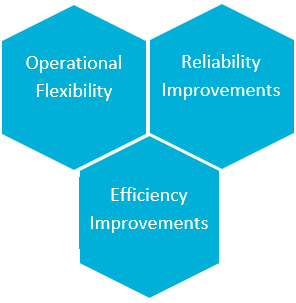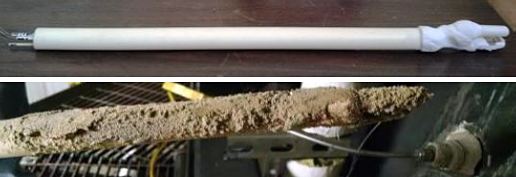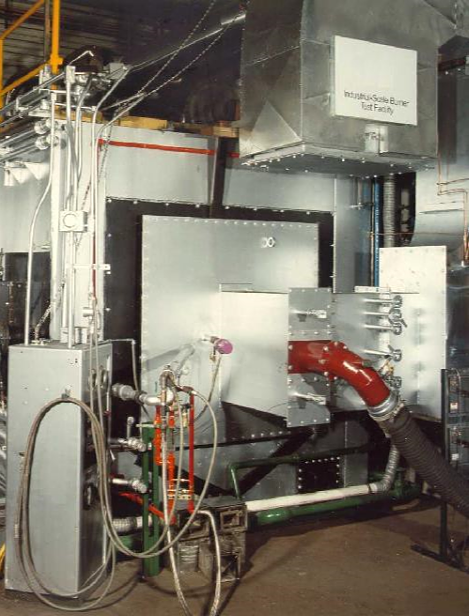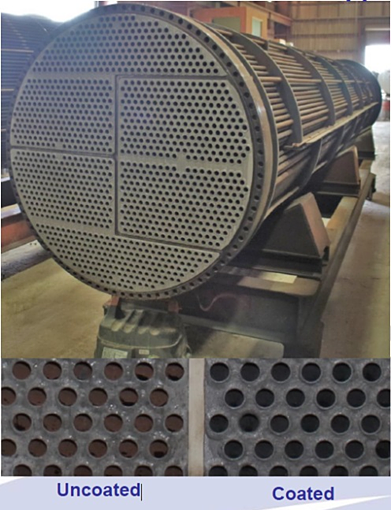About
News and Events
Research and Programs
Featured Initiatives Advanced Alloy Signature Center (AASC) Center for Fuels and Chemicals (CFC) Center for Microwave Chemistry (CMC) Coal for High-Value Products Critical Minerals and Materials Natural Gas Science-based Artificial Intelligence and Machine Learning Institute (SAMI) Subsurface Science Turbine System Optimization
Major Fossil Energy Programs Carbon Management Resource Sustainability
Core Competencies Computational Science and Engineering Energy Conversion Engineering Geological and Environmental Systems Materials Engineering and Manufacturing Strategic Systems Analysis and Engineering Program Execution and Integration
Core Competencies Computational Science and Engineering Energy Conversion Engineering Geological and Environmental Systems Materials Engineering and Manufacturing Strategic Systems Analysis and Engineering Program Execution and Integration
Energy Technology Development Office of Critical Minerals and Energy Innovation Battery Workforce Initiative Office of Cybersecurity, Energy Security, and Emergency Response Office of Electricity
University Training & Research Historically Black Colleges and Universities and Minority Serving Institutions Program University Carbon Research Program
University Training & Research Historically Black Colleges and Universities and Minority Serving Institutions Program University Carbon Research Program
Business
Library
Explore our Library

Approved Categorical Exclusions Environmental Assessments Environmental Impact Statements Oil and Gas Projects Summaries NETL Fact Sheets Publication Search Energy Data Exchange (EDX) FECM External R&D Final Technical Reports Project Landing Page Summary Information for External R&D Awards NETL R&D Publication Search Peer Review Reports
- Research and Programs
- Featured Initiatives
- Core Competencies
- Core Competencies
- Energy Technology Development
- University Training & Research
-
- Business
- Technology Transfer
-
- Library
- Energy Analysis
-
- About
- News and Events
- Education



 The existing coal power generating fleet plays a critical role providing reliable power generation required for power grid stability. It is important that these existing units continue to operate in an efficient and reliable manner. Under the current energy landscape, power plants are often required to operate at low and/or variable loads. Since the plants are not designed to operate below baseload, operation at low-load results in lowered efficiency and increased wear on the plant components. Operation at variable loads requires ramping of the plant capacity, which adds to the lowered efficiency and increased wear on plant components. As a result, there is a need for rapid commercialization of technologies to improve the efficiency, reliability, and flexibility of existing coal-based power plants. Existing plant combustion technologies research and development (R&D) focuses on the identification of impactful, near-term opportunities applicable to the needs of the existing fleet.
The existing coal power generating fleet plays a critical role providing reliable power generation required for power grid stability. It is important that these existing units continue to operate in an efficient and reliable manner. Under the current energy landscape, power plants are often required to operate at low and/or variable loads. Since the plants are not designed to operate below baseload, operation at low-load results in lowered efficiency and increased wear on the plant components. Operation at variable loads requires ramping of the plant capacity, which adds to the lowered efficiency and increased wear on plant components. As a result, there is a need for rapid commercialization of technologies to improve the efficiency, reliability, and flexibility of existing coal-based power plants. Existing plant combustion technologies research and development (R&D) focuses on the identification of impactful, near-term opportunities applicable to the needs of the existing fleet.
 For a significant fraction of the existing coal-fired fleet, flexible operation (i.e., low-load operation and frequent deep cycling) has become the normal operating condition. Technology development efforts are focusing on rapid cycling and methods for responding to load changes. Advanced control methods for monitoring coal pulverizer operation and controlling steam and gas temperatures at low loads are being studied to improve the performance and economics of existing power plants. The implementation of neural networks and sensor technologies enables intelligent control for optimal combustion system performance and can improve flexible operation capability.
For a significant fraction of the existing coal-fired fleet, flexible operation (i.e., low-load operation and frequent deep cycling) has become the normal operating condition. Technology development efforts are focusing on rapid cycling and methods for responding to load changes. Advanced control methods for monitoring coal pulverizer operation and controlling steam and gas temperatures at low loads are being studied to improve the performance and economics of existing power plants. The implementation of neural networks and sensor technologies enables intelligent control for optimal combustion system performance and can improve flexible operation capability. Improving plant efficiency is critical to the economic viability of a coal-fired power plant. Technology solutions are being investigated to improve efficiency of existing plants during both transient and steady-state operation, leading to reductions in operating cost and emissions. The Transformative Power Generation Program is identifying plant upgrades and areas for potential R&D to improve boiler and steam cycle efficiency, as well as to reduce auxiliary power. Improvements to the steam cycle efficiency involve additional steam generation, pump and cooling tower upgrades, and advanced ultra-supercritical (A-USC) retrofit options that include increased steam temperature and use of advanced materials for enhanced heat transfer efficiency. Efficiently recycling resources such as waste heat and water also presents advantages for increasing plant efficiency and reducing costs.
Improving plant efficiency is critical to the economic viability of a coal-fired power plant. Technology solutions are being investigated to improve efficiency of existing plants during both transient and steady-state operation, leading to reductions in operating cost and emissions. The Transformative Power Generation Program is identifying plant upgrades and areas for potential R&D to improve boiler and steam cycle efficiency, as well as to reduce auxiliary power. Improvements to the steam cycle efficiency involve additional steam generation, pump and cooling tower upgrades, and advanced ultra-supercritical (A-USC) retrofit options that include increased steam temperature and use of advanced materials for enhanced heat transfer efficiency. Efficiently recycling resources such as waste heat and water also presents advantages for increasing plant efficiency and reducing costs.